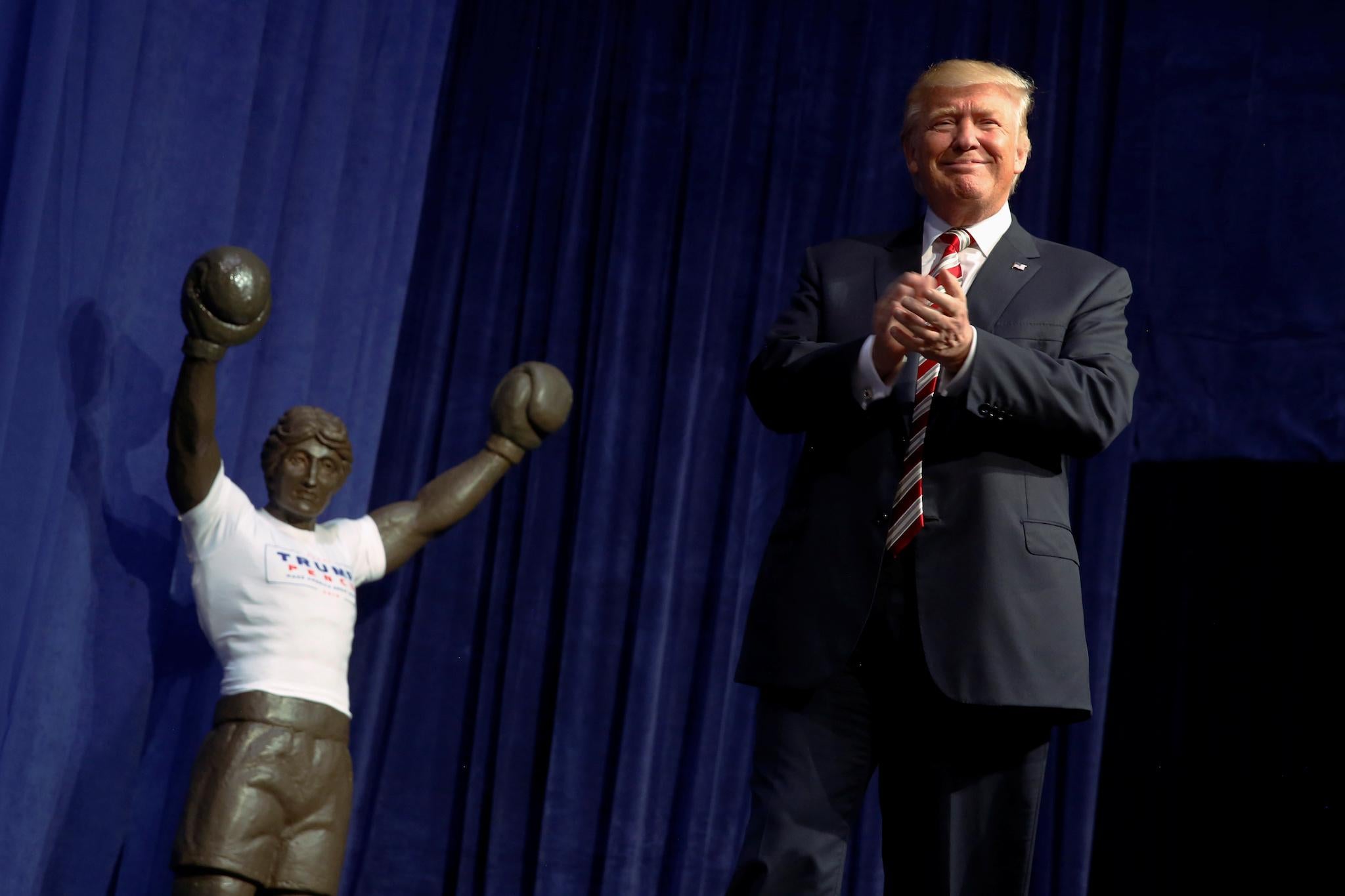Shitposting: What is the bizarre online behaviour that could win Donald Trump the election?
Numerous elections have been called the first social media election, but this might truly be the first powered by trolling

A secretive group is posting memes across the internet to try and win the election for Donald Trump.
The group came to mass attention when it emerged that they were being funded by Palmer Luckey, the maker of the Oculus Rift virtual reality headset and Facebook employee. But it is just the latest example of what the group refers to explicitly as “shitposting” in the 2016 election – what might be the first Presidential vote decided in part by memes.
The group is called Nimble America and appears to have been founded precisely to “shitpost” – on the internet, where the phenomenon began, but also in real life.
"What we've been able to accomplish here has been amazing and much bigger than any of us and certainly much bigger than Reddit," a statement posted by the group on Reddit said. "We've proven that shitposting is powerful and meme magic is real."
Shitposting in its most basic form is exactly what it sounds like: posts on websites that aren’t good, and often are aggressively bad. Such posts are usually derailing, often using recycled information or pictures that fill up posts on a
The phenomenon is directly related to memes and image macros, because those posts are often made up of them. And they are usually a particular kind of image – a slightly tired meme that has no relevance to the discussion apart from to send it off in another direction.
Since then, the word has gained a slightly more broad meaning. Rather than just referring to intentional behaviour on forums, as it once did, it has gradually come to refer to the kinds of screenshotted, bad quality posts that are shared around Facebook and other sites – gradually losing their context and their image quality as they do so.
All of those meanings appear to be folded into Nimble America, and Palmer Luckey’s mission to use it to political ends.
Shitposting in itself doesn’t appear to have much of a politics, instead being a tool that can be put to a variety of effects – being used from everyone from the far-right such as Trump fans to left-wing groups online like those meant to support Bernie Sanders.
But it’s not much of a stress to say that this might be the first election decided in part by memes. While multiple years have been called the “social media election”, 2016’s is surely the first one where internet culture – including Pepe The Frog – has made its way into the mainstream political discourse.

Palmer Luckey’s Nimble America might also be the first to take shitposting out into the real world, in a significant and political way.
The group – while still anonymous – carried out its first big public event by posting a “cartoonishly large” picture of Hillary Clinton’s face with a caption reading “Too Big to Jail”. It is an example of shitposting making its way into the real world – recycled images meant to derail people who see it in person, not on the internet.
Mr Luckey said that he met the creators of the group on Facebook, and decided to invest just so that he could see more of the posts.
“"It went along the lines of 'hey, I have a bunch of money. I would love to see more of this stuff,’” he said. "They wanted to build buzz and do fundraising."
Join our commenting forum
Join thought-provoking conversations, follow other Independent readers and see their replies
Comments
Bookmark popover
Removed from bookmarks